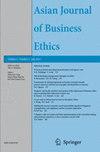Front-line employees (FELs) facing double challenges of handling demanding supervisors and irresponsible customers in organizational settings. Performance of service organizations exceedingly reliant on knowledge sharing within organizational employees. FLEs develop the destructive emotions of revenge attitude from abusive supervision and customers’ mistreatment and diminish knowledge sharing. This work aims to determine the effect of abusive supervision (ABS) and customer mistreatment (CMT) on the development of revenge attitude (RVA) and felt obligation (FTO) reduces the knowledge hiding behaviors. Moreover, the FLEs categorical factors of work experience and gender vary the effect of knowledge hiding. Survey data from 201 FLEs police officers. Structural equation modeling partial least square regression (PLS-SEM) SmartPLS 3.1 was utilized to test the model. Study results confirm that ABS and CMT significantly impact the RVA, and FTO reduces the RVA. Moreover, RVA influences the evasive, playing dumb, and rationalized knowledge hiding behaviors, and FTO significantly streamlined the knowledge hiding behaviors. FLEs personal attributes of experience and gender moderates the knowledge hiding behaviour and analysed with PLS multiple group analysis (MGA). The study contributes to the knowledge hiding in service work settings FLEs facing internal and external pressures. Service firms need to train the FLEs to manage the customer with the established working standards and work with the supervisor exceeding expectations. Study limitations and future research opportunities were reported at the end.


